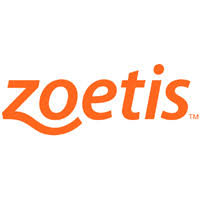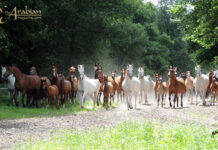Zoetis Inc. today announced the results of two surveys about Equine Herpes Virus (EHV). The surveys, prompted by the recent flu outbreak, have shown that vets and horse owners are keen to work together to actively reduce the risks of this lesser known but common infectious respiratory disease.1,2 Watch Professor Josh Slater explaining EHV here: https://www.horsedialog.co.uk/Health/WhatisEHV.aspx .
Commonly referred to as EHV, Equine Herpes Virus is actually a family of different viruses with EHV-1 and 4 being the most common. It is very contagious and can cause respiratory disease, abortion and more rarely neurological disease. In addition, sub-clinical infections can be associated with a syndrome of poor performance and have a potential effect on the health of the whole yard.3
Zoetis ran the two surveys about EHV earlier in the year, one aimed at vets and the other at horse owners. The intention was to gain a better understanding of veterinary strategies to control outbreaks and to understand horse owner knowledge and awareness of EHV, in order to identify the most effective ways to minimise disease. Around 1300 responses were received.1,2
- More than 55% of horse owners said they were not aware there was a vaccination available for EHV.
- 77% of those currently not vaccinating against EHV said they would now do so having learnt more about it.
- Veterinary advice and rider association endorsement were consistently identified as the most valued sources of information when it comes to learning about infectious diseases and biosecurity and making decisions to vaccinate.
“The majority of horses are infected with EHV in the first few years of life,” explained Zoetis vet Wendy Talbot. “Renewed shedding of virus from the nose of infected horses, especially during times of stress, results in new outbreaks and clinical cases. Virus is also spread by contact with infected aborted foals and the placenta. Vaccination against EHV is important because it helps to prime the horse’s immune system to respond faster and more effectively to ward off disease. It helps reduce the severity and spread of the respiratory disease and the frequency of abortion.4 As with flu, rigorous biosecurity is also imperative to help minimise the risks of EHV spreading.”
Almost all horse owner survey participants said they wanted more educational and awareness information on EHV to be made readily available. Zoetis, in conjunction with Professor Josh Slater, has produced a series of four short educational videos for horse owners:
https://www.horsedialog.co.uk/Health/WhatisEHV.aspx
https://www.horsedialog.co.uk/Health/Signs-of-EHV.aspx
https://www.horsedialog.co.uk/Health/EHV-vaccination.aspx
https://www.horsedialog.co.uk/Health/Suspect-EHV.aspx
Zoetis has also produced a microsite containing information on Equine Herpes Virus (EHV): http://www.horsedialog.co.uk/equineherpes.aspx .
“It’s in every horse owner’s interests to understand and take action against EHV, to minimise the risks to our horses,” said Dr Philip Ivens, Equine Internal Medicine Specialist at Buckingham Equine Vets. “EHV has potentially serious health, performance and financial implications across every sector of the equestrian industry but by making sure the disease is on everyone’s radar we can help to prevent it. Contact your vet immediately if you think your horse may have EHV.”
Emmeline Hannelly, BHS Welfare Education Manager said: “The awareness and interest in equine contagious diseases has increased in the equine community following the equine influenza outbreak. As reflected in the survey results, it’s encouraging that a high proportion of horse owners want to find out further information and understand the potential risk of EHV to their horses. The BHS supports the educational materials produced by Zoetis to inform owners about the disease, and recommendation from vets to vaccinate.”
Visit www.horsedialog.co.uk for more information on disease risks, vaccination, equine health and wellbeing.
References
- Data on File, March Equine Herpes Virus Horse Owner Survey 2019, Zoetis, Inc.
- Data on File, March Equine Herpes Virus Vet Survey 2019, Zoetis, Inc.
- Slater J (2014) Equine Herpesviruses. In: Equine Infectious Diseases. Eds., D.C. Sellon and M. Long, Saunders, St. Louis. P151-169
- Heldens JG., Hannant D, Cullinane AA, et al. Clinical and virological evaluation of the efficacy of an inactivated EHV1 and EHV4 whole virus vaccine (Duvaxyn EHV1,4). Vaccination/challenge experiments in foals and pregnant mares. Vaccine. 2001;19:4307-4317. doi:10.1016/S0264-410X(01)00131-1.











